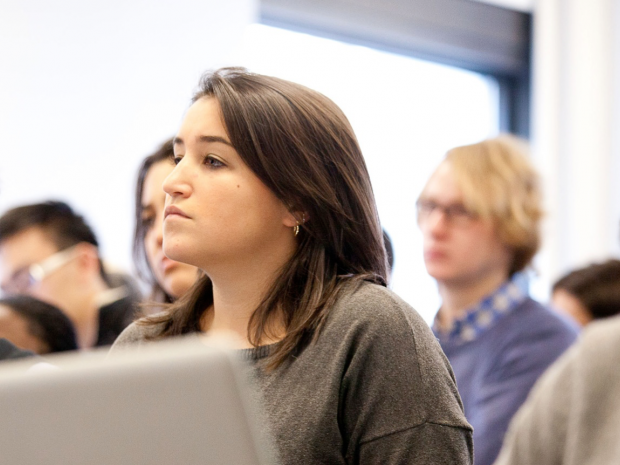Part-Time Studies in Civil Engineering
Frequently Asked Questions by Part-Time Students

The Case for Part-Time Studies
Many students find that it is professionally rewarding to gain experience at one of the many leading firms located in New York City, working full-time, while they obtain their masters at NYU. At the end of their studies, most part-time students find that employers put a premium on their combined educational and professional portfolio.
Class Time
Nearly all graduate courses are offered in the evening beginning at 6 pm. A few on-line classes are also available.
Financial Aid for Part-Time Students
NYU Tandon will consider highly qualified part-time students who receive an unconditional offer of admission to a CUE Master's of Science degree for a partial-tuition merit scholarship. If awarded, the scholarship award letter will be included in your offer of admission. Additionally, many employers offer tuition assistance to their employees. Please check with the HR department of your employer.
Time Commitment
A Masters degree consists of 30 credits. Each course is typically 3 credits. Most part-time students are able to manage 6 credits (2 courses) per semester along with their work responsibilities. Some students prefer to start with one course in their first semester, so the degree can be completed in 3 years on a part-time basis. New York State expects students to spend 3 hours of outside of class study for each credit hour. Finally, NYU requires that all degree requirements be met in 5 years from the date you begin your studies.
Location
Most courses are offered at the Metrotech campus in Brooklyn. The Metrotech is easily accessible by subway, with many stops within 5 minutes walk, including:
- Jay Street Station (A, C, F, N, R lines)
- Borough Hall Station (1, 2, 4, 5)
Academics
Student to faculty ratio is low, allowing professors to provide personal attention to every student, and to monitor their growth. Many professors have substantial industrial expertise, which imparts deep practical knowledge with real-life projects serving as examples.
Courses provide a balance between core courses that help in the overall development of the student as a professional, and applied concentration courses intended to help students advance in their career.

